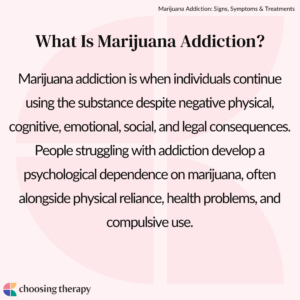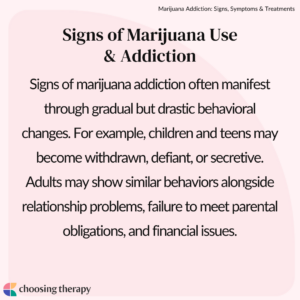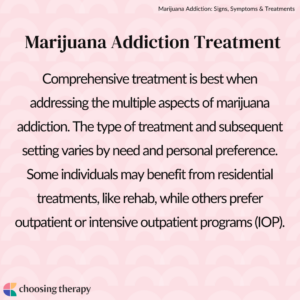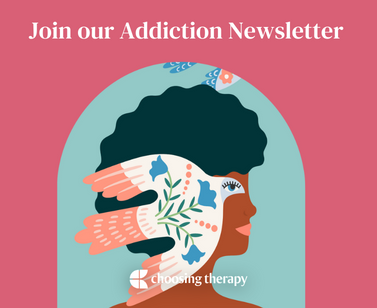Marijuana addiction is a pervasive medical condition in which one becomes reliant on marijuana. Individuals addicted to marijuana continue using the substance despite the associated consequences. With therapy, medication, and lifestyle changes, many can learn to overcome cravings and achieve long-lasting recovery.
Quit Smoking Pot With Relay Relay is a group-based, digital recovery program for mastering compulsive marijuana use. Try It Free
What Is Marijuana Addiction?
Marijuana addiction (clinical cannabis user disorder) is when individuals continue using the substance despite negative physical, cognitive, emotional, social, and legal consequences.1 People struggling with addiction develop a psychological dependence on marijuana, often alongside physical reliance, health problems, and compulsive use.
Some argue that marijuana is not addictive. However, one study determined that marijuana was ranked 11 out of the major medically classified drugs.2,3 In fact, roughly 1 in 10 marijuana users will become addicted, with rates increasing to 1 in 6 for individuals under 18.4
Why Is Weed Addictive?
Tetrahydrocannabinol (THC) is the active agent in marijuana that creates a euphoric high. THC has a similar structure to the natural chemical anandamide in the brain, allowing it to act as a neurotransmitter.5 THC can impact areas of the brain that influence pleasure, memory, thinking, concentration, movement, coordination, and sensory and time perception.5
Individuals consuming marijuana activate the brain’s pleasure pathway. People are hardwired to gravitate toward things and substances that elicit pleasure. Therefore, some may continue using addictive drugs like marijuana to continue experiencing these desired effects.
Signs of Marijuana Use & Addiction
Signs of marijuana addiction often manifest through gradual but drastic behavioral changes. For example, children and teens may become withdrawn, defiant, or secretive. Adults may show similar behaviors alongside relationship problems, failure to meet parental obligations, and financial issues.
Below are common signs of marijuana use and addiction:1
- Impaired motor coordination
- Increased anxiety
- Impaired judgment
- Social withdrawal
- Poor academic or work performance
- Marijuana paraphernalia
- Changes in social circles
- Refusing to follow authority
- Falling behind on responsibilities
Symptoms of Marijuana Addiction
The symptoms of marijuana use vary depending on the individual and extent of use. Many cannabis use disorder symptoms are similar to those experienced while intoxicated but are more pervasive and severe. The more manifestations present, the greater the likelihood that one is struggling with marijuana addiction.
Common symptoms of marijuana addiction include:6
- Bloodshot eyes
- Distorted perception
- Dizziness
- Dry mouth
- Feeling “high” or euphoria
- Impaired coordination
- Impair judgment
- Increased appetite
- Lack of motivation
- Memory impairment
- Nervous or paranoid behavior
- Relaxed state, sleepiness
- Slowed or poor coordination
- Slowed reaction time
- Weight gain
Help For Addiction Ria Health: Effective, Evidence-Based Alcohol Treatment 100% Online Quickly change your relationship to alcohol with our at-home program. On average, Ria Health members reduce their BAC levels by 50% in 3 months in the program. Services are covered by many major health plans. Visit Ria Health Workit Health – Online Treatment for Opioids or Alcohol, Including Medication. Modern, personalized recovery that combines medication, a supportive community, and helpful content. Covered by many insurance plans. Currently available in FL, TX, OH, MI, and NJ. Visit Workit Health Best Drug Addiction Rehab Centers – Find the best local detox or drug rehab center covered by your health insurance. Search by location, condition, insurance, and more. Read reviews. Start Your Search
What Causes Marijuana Addiction?
The causes and triggers of marijuana addiction vary, but genetic vulnerability is a significant factor. While chronic use can lead to addiction over months or years, those with genetic vulnerability often experience the onset of addiction more rapidly.7 However, anyone consuming marijuana without proper precautions risks becoming addicted. As the alcohol advertisements on television remind consumers to “drink responsibly,” the same applies here.
Common causes and triggers of marijuana addiction include:
- Easy access to marijuana
- Having an addictive personality
- Being bored or alone
- Experiencing acute or chronic pain
- Facing significant loss or grief
- Family history of use
- Genetic vulnerability
- Having a history of trauma
- Mental health or other substance use disorder (potentially developing a cross addiction)
When Does Marijuana Use Become Addiction?
Individuals can experience marijuana addiction when use consumes their lives. Weed is no longer used casually and has become a necessity. For medicinal users, misuse of the drug primarily indicates addiction.
Signs of problematic marijuana use include:8
- Continuing to take marijuana when no longer medically necessary
- Requiring increased amounts of marijuana to achieve the desired effects
- Experiencing emotional instability, lethargy, or physical discomfort when effects subside
- Continuing to use despite a desire to stop or associated consequences
- Spending significant time thinking about and acquiring marijuana
- Increased marijuana use over longer periods than intended
- Engaging in physically hazardous activities to self or others while under the influence
- Stealing or borrowing money to pay for marijuana
- Becoming distant from and struggling to get along with loved ones and friends
- Getting too much or too little sleep
- Eating too much or too little
- Surrounding oneself with those who engage in the same problematic behavior
- Doctor shopping for prescription marijuana or stealing from others
- Combining marijuana with alcohol and recreational drugs
Health Risks of Marijuana Addiction
Although medicinal marijuana has proven medical benefits, misuse can lead to addiction and associated health risks. Those struggling with marijuana addiction risk negative impacts on brain health, mental health, athletic performance, and daily life.9 The more one consumes, the higher the likelihood of long-term effects.
Short-Term Health Risks of Marijuana Addiction
Short-term health risks tend to occur during use and shortly after marijuana consumption. Impacts are acute but may impair faculties to the extent of creating additional hazards. For instance, poor coordination may increase the likelihood of trips, falls, and other bodily injury.
Common short-term health risks of marijuana use include:10
- Altered senses, such as seeing brighter colors
- Altered sense of time, such as minutes seeming like hours
- Changes in mood
- Problems with body movement
- Trouble with thinking, problem-solving, and memory
- Increased appetite
Long-Term Health Risks of Marijuana Addiction
The long-term impacts of marijuana use and addiction occur well beyond consumption. Continued use can compound these effects and worsen outcomes.
Long-term health risks of marijuana use may include:10
- Problems with brain development, including thinking, memory, and learning
- Coughing and breathing problems
- Problems with child development during and after pregnancy
Quit Smoking Pot With Relay Relay is a group-based, digital recovery program for mastering compulsive marijuana use. Try It Free
Marijuana Addiction Treatment
Comprehensive treatment is best when addressing the multiple aspects of marijuana addiction. The type of treatment and subsequent setting varies by need and personal preference. Some individuals may benefit from residential treatments, like rehab, while others prefer outpatient or intensive outpatient programs (IOP).
Cognitive Behavioral Therapy (CBT)
CBT for addiction focuses on maladaptive beliefs and values contributing to problematic thoughts and subsequent behaviors. For example, a common idea is that marijuana is completely safe and consumption is okay, leading to the ultimate use of the substance.
In CBT sessions, the therapist and patient may work together to adjust the belief to one that accurately recognizes the risks involved. Thoughts become more discretionary, and use is minimized or discontinued.
Family Counseling
Family counseling is helpful when marijuana use by a single or multiple users impacts the family as a whole. Therapists can help them process emotional disturbances, set boundaries, and work on healthier communication. Everyone can work together to support and hold one another accountable.
Motivational Enhancement Therapy (MET)
Motivational enhancement therapy (MET) assists individuals in improving their motivation to change their problematic use and overcome marijuana addiction.11 Change can only occur when individuals are motivated to address their unhealthy substance use. MET provides a jump start in this therapeutic process.
Medication
Currently, there are no FDA-approved medications specifically for marijuana addiction. However, some medications, such as buspirone, can help reduce symptoms of marijuana withdrawal.12 In some cases, medication-assisted treatment (MAT) can be especially beneficial because it couples therapy with medications to combat addiction. Consult a medical professional about any medications and only take prescriptions as recommended.
Living With Marijuana Addiction
Many professionals tell patients to change “persons, places, and things” associated with marijuana use. Those intending to take recovery seriously should consider distancing from any triggers. Otherwise, individuals can fall back into the cycle of misuse and addiction.
Living with marijuana addiction presents challenges. However, recovery is manageable so long as you remain intentional and consistent. Treatment can provide knowledge, insights, and healthy coping skills to help work through cravings and other triggers. Reaching out for support is invaluable when struggling.
Focus on improving your emotional, environmental, financial, intellectual, occupational, physical, social, and spiritual well-being.13 Keeping these aspects balanced can aid in achieving long-term recovery and success.
Below are ways to cope with marijuana addiction:
- Attending support groups
- Avoiding activities that fuel urges and cravings
- Distancing from triggering persons, places, and things
- Eating healthier and exercising
- Engaging in wholesome activities and hobbies
- Journaling or partaking in a healthy creative expression
- Meditating or praying
- Removing marijuana and marijuana paraphernalia from the home
- Seeing a therapist
- Speaking with regular support
To help our readers take the next step in their mental health journey, Choosing Therapy has partnered with leaders in mental health and wellness. Choosing Therapy is compensated for marketing by the companies included below. Online Treatment for Opioids or Alcohol, Including Medication. Workit Health – Modern, personalized recovery that combines medication, a supportive community, and helpful content. Covered by many insurance plans. Currently available in FL, TX, OH, MI, and NJ. Visit Workit Health Alcohol Treatment – Cut Back or Quit Entirely Ria Health – Quickly change your relationship to alcohol with our at-home program. On average, members reduce their BAC levels by 50% in 3 months in the program. Services are covered by many major health plans. Visit Ria Health Drug Addiction Rehab Centers Recovery.com – Find the best local detox or drug rehab center covered by your health insurance. Search by location, condition, insurance, and more. Read reviews. Start Your Search Telehealth Treatment For Opioid Use Disorder Bicycle Health – offers therapy, support, and medication for addiction treatment (MAT). MAT offers the lowest relapse rates for opioid use disorder, helping people to stop using opioids with minimal physical discomfort. Covered by most major insurance. Visit Bicycle Health Drinking Moderation Sunnyside – Want to drink less? Sunnyside helps you ease into mindful drinking at your own pace. Think lifestyle change, not a fad diet. Develop new daily routines, so you maintain your new habits for life. Take a 3 Minute QuizAdditional Resources
For Further Reading
Best Online Medication-Assisted Treatment Programs Online medication-assisted treatment programs are fairly new to the telehealth industry, but existing companies are expanding quickly with new programs emerging every day. It’s important to explore your options and understand the level of virtual care available so you can choose the best addiction treatment program for you.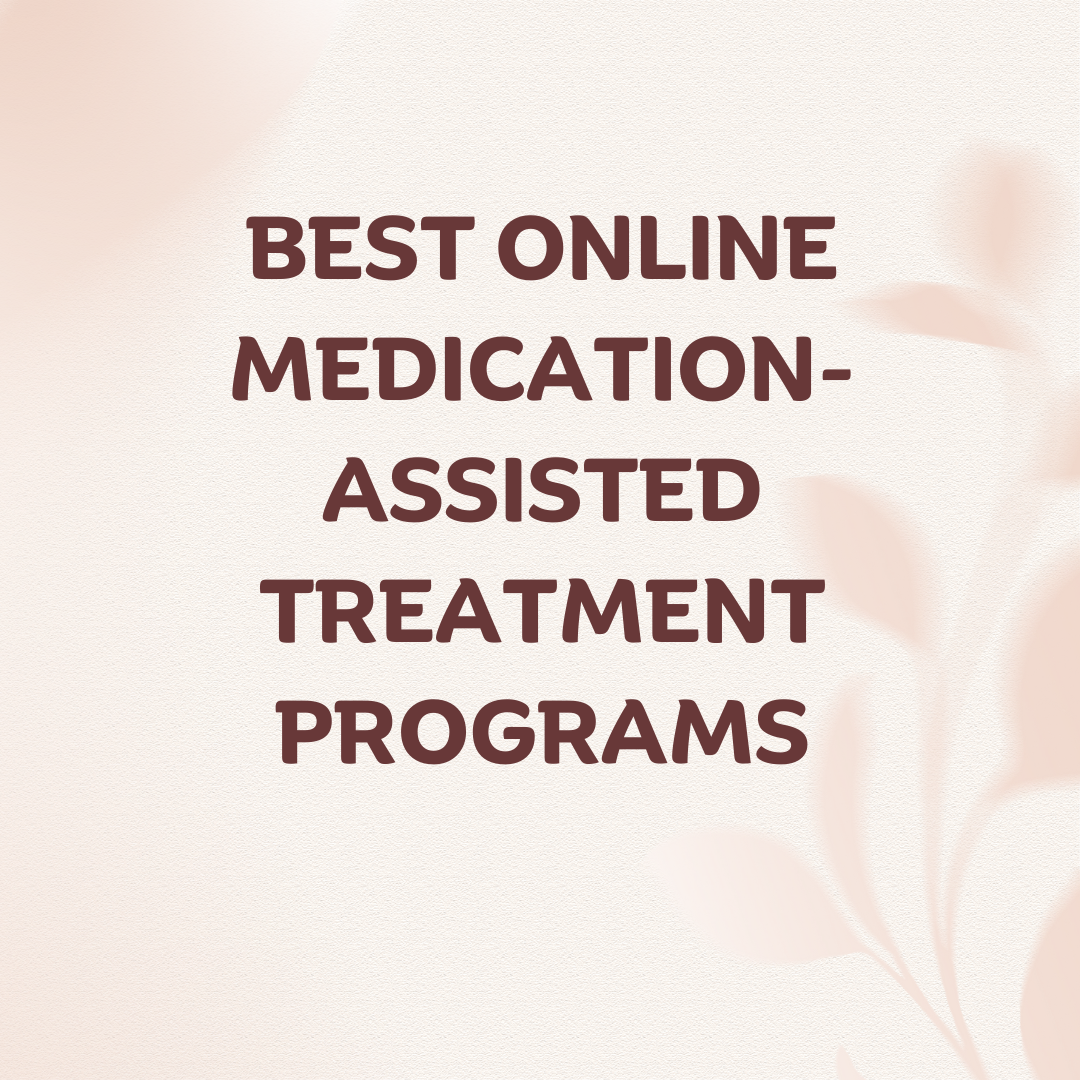
Best Mindful Drinking Apps If you’re thinking about joining the sober curious movement and you’d like to cut back on drinking, mindful drinking apps are a great place to start. Practicing mindful drinking can take some time, attention, and patience, but with the help of the right app, you can completely transform your relationship with alcohol.





